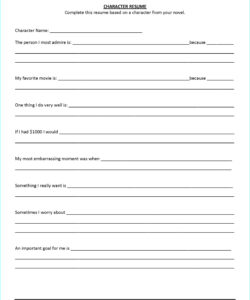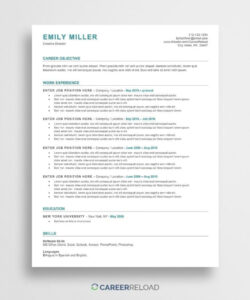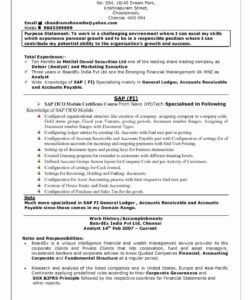When it comes to acing an interview, your choice of attire can play a pivotal role in making or breaking the deal. Your clothing not only helps you portray professionalism but also showcases your respect for the company and the opportunity at hand. Dressing appropriately sends a strong message to your potential employer, signaling that you understand and value the importance of the occasion.
So, what should you avoid wearing at an interview? To ensure you present yourself in the best possible light, steer clear of these fashion faux pas:
1. Casual or overly trendy attire: While it’s important to display your personal style, an interview is not the time to experiment with fashion trends or dress too casually. Skip the jeans, t-shirts, and sneakers, no matter how laid-back the company culture may be.
2. Revealing or inappropriate clothing: Your interview outfit should be modest and professional. Avoid anything too revealing, such as low-cut tops, short skirts, or tight-fitting clothes. Additionally, stay away from eccentric or distracting accessories that could take away attention from your qualifications.
3. Strong fragrances or excessive jewelry: Remember that you want the interviewer to focus on your skills and qualifications, not on how overpowering your perfume or cologne is. Opt for subtle scents or none at all. Similarly, keep jewelry minimal and avoid anything noisy or attention-grabbing.
By adhering to these guidelines, you’ll present yourself as a serious candidate who is prepared, respectful, and attentive to detail. Remember, dressing appropriately is the first step in creating a positive impression and setting the tone for a successful interview. Good luck!
What Not to Wear at an Interview: Dressing for Success
The Importance of Dressing Appropriately
When it comes to job interviews, your appearance can make a lasting impression on potential employers. It is crucial to understand the importance of dressing appropriately for an interview and avoid making fashion faux pas that could cost you the job opportunity. Dressing professionally not only shows respect for the company and the interview process but also demonstrates your ability to fit into the corporate culture.
However, knowing what not to wear can be just as crucial as knowing what to wear. A poor choice of attire can distract the interviewer or give the wrong impression about your professionalism. In this article, we will discuss the top things you should avoid wearing to an interview in order to maximize your chances of success.
Avoid Casual Attire
One common mistake job seekers make is wearing casual attire to an interview. While it may be tempting to be comfortable, dressing casually can give the impression that you don’t take the interview seriously or do not respect the company’s professional standards. Avoid wearing jeans, t-shirts, sweatshirts, sneakers, or any other clothing that is too casual for a professional setting.
Instead, opt for business professional or business casual attire, depending on the company’s dress code. This usually means wearing a suit or a neat pair of dress pants or skirt with a blouse or shirt. It’s better to be slightly overdressed than underdressed for an interview.
Keep it Conservative
While expressing your personal style is important, it’s crucial to keep it conservative when it comes to an interview. Avoid wearing anything that may be considered too revealing or distracting. This includes low-cut tops, short skirts or shorts, tight-fitting clothing, and excessive accessories or jewelry.
Remember, the focus should be on your skills, qualifications, and experience rather than your appearance. Keeping your outfit modest and professional will ensure that the interviewer’s attention remains on what truly matters.
Steer Clear of Loud Colors and Patterns
While it’s important to showcase your personality, it’s best to avoid wearing loud and distracting colors or patterns during an interview. Opt for neutral, classic colors such as black, gray, navy blue, or white. These colors convey professionalism and are less likely to draw attention away from your qualifications.
Avoid wearing overly bright or neon colors, bold patterns, or busy prints. These can be visually overwhelming and might detract from the impression you want to make. Remember, you want the interviewer to remember you for your skills and not your wardrobe choices.
Pay Attention to Grooming and Accessories
Dressing appropriately for an interview goes beyond just clothing. Pay attention to your grooming and accessories as well. Make sure your hair is neat and well-groomed, and your nails are clean and trimmed.
When it comes to accessories, keep it minimal and tasteful. Avoid large, distracting jewelry or accessories that may make noise during the interview. Similarly, opt for neutral or conservative shoes that are in good condition and coordinate with your outfit.
Table of “What Not to Wear” at an Interview:
| Item | Avoid |
|---|---|
| Jeans | Yes |
| T-shirts | Yes |
| Sweatshirts | Yes |
| Sneakers | Yes |
| Low-cut tops | Yes |
| Short skirts or shorts | Yes |
| Tight-fitting clothing | Yes |
| Excessive accessories or jewelry | Yes |
| Loud colors | Yes |
| Bold patterns | Yes |
Frequently Asked Questions about What Not to Wear at an Interview
Q: Can I wear jeans to an interview?
A: No, wearing jeans to an interview is not appropriate. It’s best to opt for more formal attire such as a suit or dress pants.
Q: Is it acceptable to wear sneakers to an interview?
A: No, sneakers are too casual for an interview. It’s best to wear closed-toe shoes that are professional and polished.
Q: Can I wear bold patterns or bright colors to an interview?
A: It’s best to avoid bold patterns and bright colors as they can be distracting. Opt for neutral and classic colors instead.
Q: Are visible tattoos and piercings acceptable during an interview?
A: It’s best to cover up visible tattoos and remove any excessive piercings to maintain a professional appearance during an interview.
Q: Can I wear a short skirt or shorts to an interview?
A: No, it’s best to keep your skirt or shorts at an appropriate length. Opt for knee-length or longer to convey professionalism.


